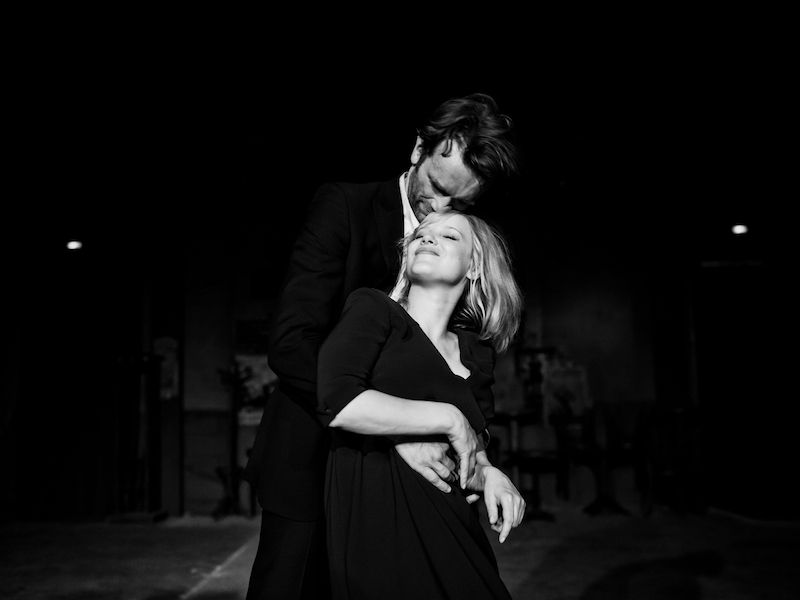
Cold War
2018, R, 89 min. Directed by Pawel Pawlikowski. Starring Joanna Kulig, Tomasz Kot, Agata Kulesza, Borys Szyc, Cédric Kahn, Jeanne Balibar.
REVIEWED By Marjorie Baumgarten, Fri., Jan. 25, 2019
Cold War is an epic love story born amid the ruins of post-World War II Europe. Like the time period it covers, this love story is filled with passionate rhetoric and uncertain intentions. And like his Oscar-winning Best Foreign Film Ida, Pawel Pawlikowski’s Cold War is filmed in black and white, allowing for luxurious images and an anachronistic sensibility. Yet the film’s lovers are trapped in an obsessively enduring relationship, one that exists in a cocoon of its own making, separate from the world and not always emotionally available to viewers.
As the film opens, Wiktor (Kot) and Irena (Kulesza), along with their Communist handler (Szyc), are scouring the Polish countryside, à la Alan Lomax in North America, in an ethnomusicologic attempt to preserve the country’s folk music and eventually set up a music academy. Zula (Kulig) – beautiful, with good voice and opportunistic – and Wiktor become smitten from the moment she shows up to audition for admittance to the school. She has a singular presence, and both Wiktor and Pawlikowski’s camera seek her out amid the chorus of girls singing and dancing onstage to Polish folk tunes. Soon the company is touring under the watchful eyes of Communist apparatchiks, and during a trip to pre-wall East Berlin, it’s decided they will escape to the West. This plan turns into the first of many separations undergone by the pair, yet circumstances cause them to reconnect every few years. Their fortunes change, but their love is stamped with a fatalistic design.
Fans of wartime romances like Casablanca and Doctor Zhivago are sure to swoon over the fate of Cold War’s divided lovers. Love impeded by necessity and self-preservation is generally a surefire narrative hook, but in Cold War personal choices have as much to do with love’s viability as do outside forces. There’s always a sense of watching Zula and Wiktor through the safe lens of history. Musically, the film progresses through genres, moving from the folk tunes of the first half through more modern ballads, jazz, and rock, which underscore the progression of time and attitudes. At times, viewers will feel it possible to sink into the deep black tones of the cinematography (cinematographer Lukasz Zal is nominated for an Oscar, as is Pawlikowski for direction), but this should not be mistaken for absorption into the story. Zula and Wiktor remain as everlasting yet opaque as an Iron Curtain.
A note to readers: Bold and uncensored, The Austin Chronicle has been Austin’s independent news source for over 40 years, expressing the community’s political and environmental concerns and supporting its active cultural scene. Now more than ever, we need your support to continue supplying Austin with independent, free press. If real news is important to you, please consider making a donation of $5, $10 or whatever you can afford, to help keep our journalism on stands.
Marjorie Baumgarten, June 24, 2005
Marjorie Baumgarten, April 20, 2001
March 15, 2025
March 14, 2025
Cold War, Pawel Pawlikowski, Joanna Kulig, Tomasz Kot, Agata Kulesza, Borys Szyc, Cédric Kahn, Jeanne Balibar









